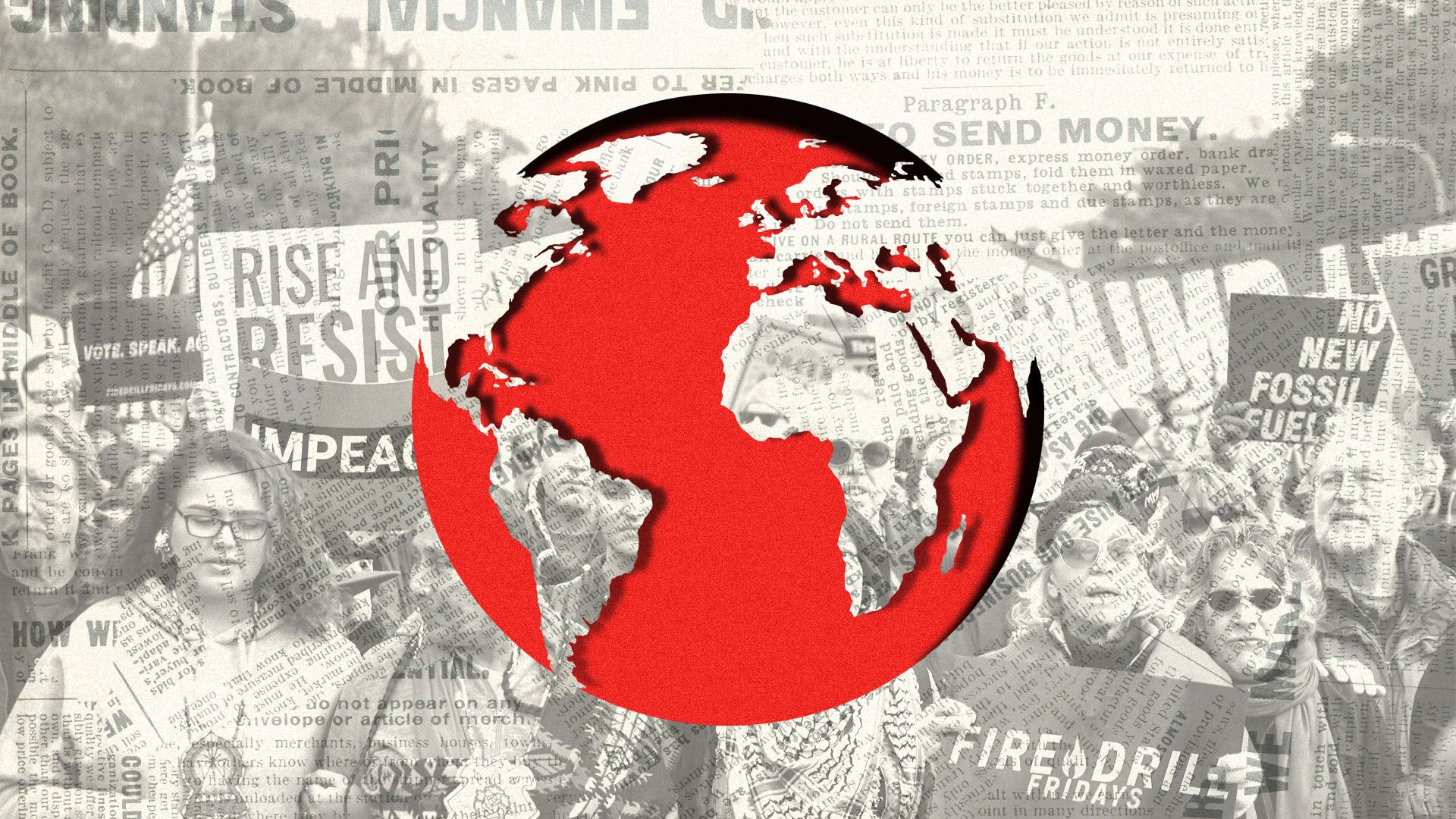What makes the 2020 election historic for climate change
Add Axios as your preferred source to
see more of our stories on Google.

Photo Illustration: Sarah Grillo/Axios. Photo: J. Countess/Getty Images
Climate change is playing a larger — and more polarizing — role than ever before in a presidential election.
Why it matters: In the past, the topic barely registered with voters and candidates were less polarized. Today, all Democratic candidates are treating it as a crisis, with detailed plans and funding sources to address it, while President Trump ignores the problem and bashes those plans.
Driving the news: In the Nov. 20 Democratic presidential debate, Joe Biden called climate change "the" existential threat to humanity, while Pete Buttigieg championed the notion of a "carbon-negative" farm. Billionaire Tom Steyer said if elected he would call a state of emergency over climate change on his first day in office.
- Billionaire Michael Bloomberg, who officially announced his candidacy on Sunday, has spent $500 million in recent years on global climate-related efforts, and in June he committed another $500 million for a Beyond Carbon initiative.
The big picture: The impacts of climate change, like more intense wildfires and more severe flooding, are increasing in frequency. Meanwhile, ways to solve the problem, like renewable energy, are becoming more affordable, even while the science increasingly says the problem is growing more dire.
- These developments taken together are making climate change a tangible issue for broader swaths of the population than in the past — so it’s permeating our politics in new and forceful ways.
Between the lines: Multiple surveys of public opinion show Americans' growing concern about climate change being driven almost entirely by Democrats.
- Democrats are looking to clamp down significantly on fossil fuels and enact ever-more aggressive and expensive plans, embodied by rhetoric surrounding the Green New Deal.
Where it stands: Trump mocks and rejects mainstream climate-change science and is repealing virtually everything predecessor Barack Obama's administration did on the matter.
- Trump will attack the ultimate Democratic nominee's climate change plan as radical, while that person will attack the president for denying science. Don’t expect an inch of common ground.
But, but, but: Climate change is unlikely to be the top issue for most voters in 2020.
- The complexity and decades-long nature of this problem makes it uniquely ill-suited for politics operating on two- to six-year cycles and makes it unlikely to ever be the top priority for any sizable portion of the population.
- More imminent concerns, like health care and the economy, will almost always win out with most voters.
The bottom line: That all said, we’re entering a new high-water mark for climate change and its political saliency.
Go deeper:
Sign up for the daily Generate newsletter to get Amy’s "Harder Line" column, which will delve deeper into all of this on Monday.
